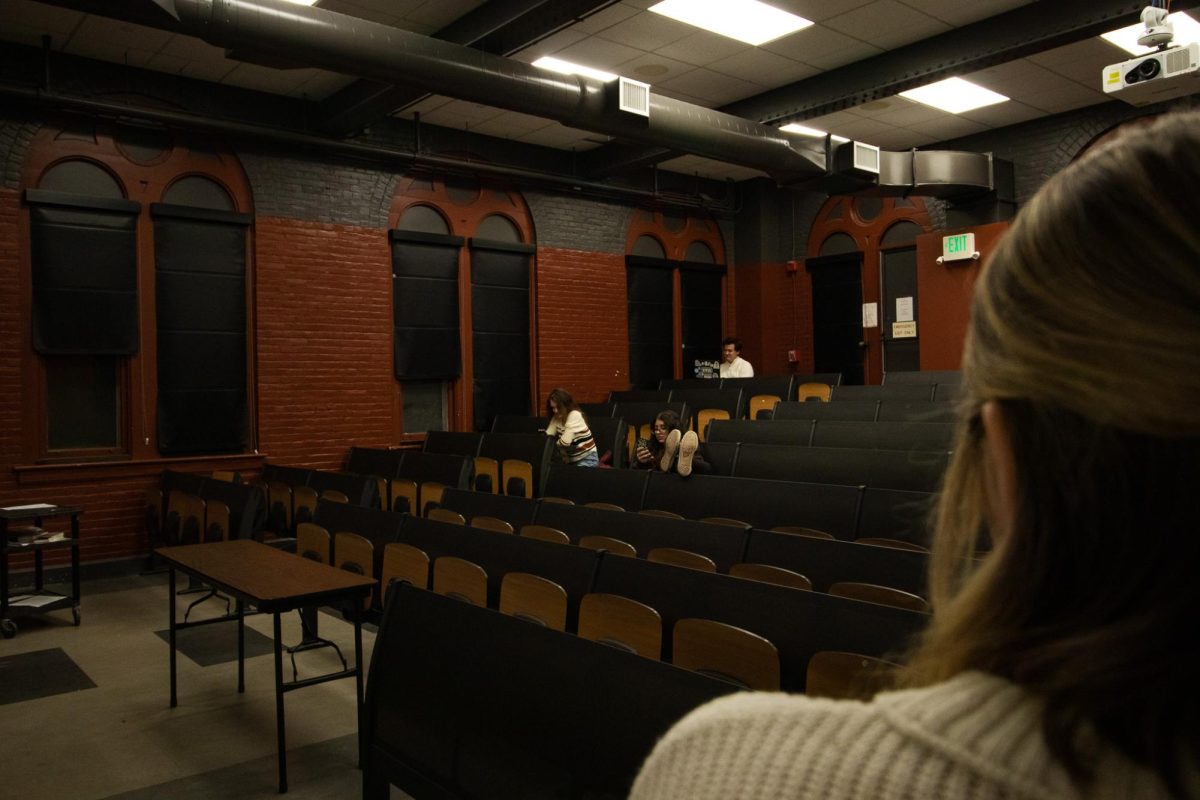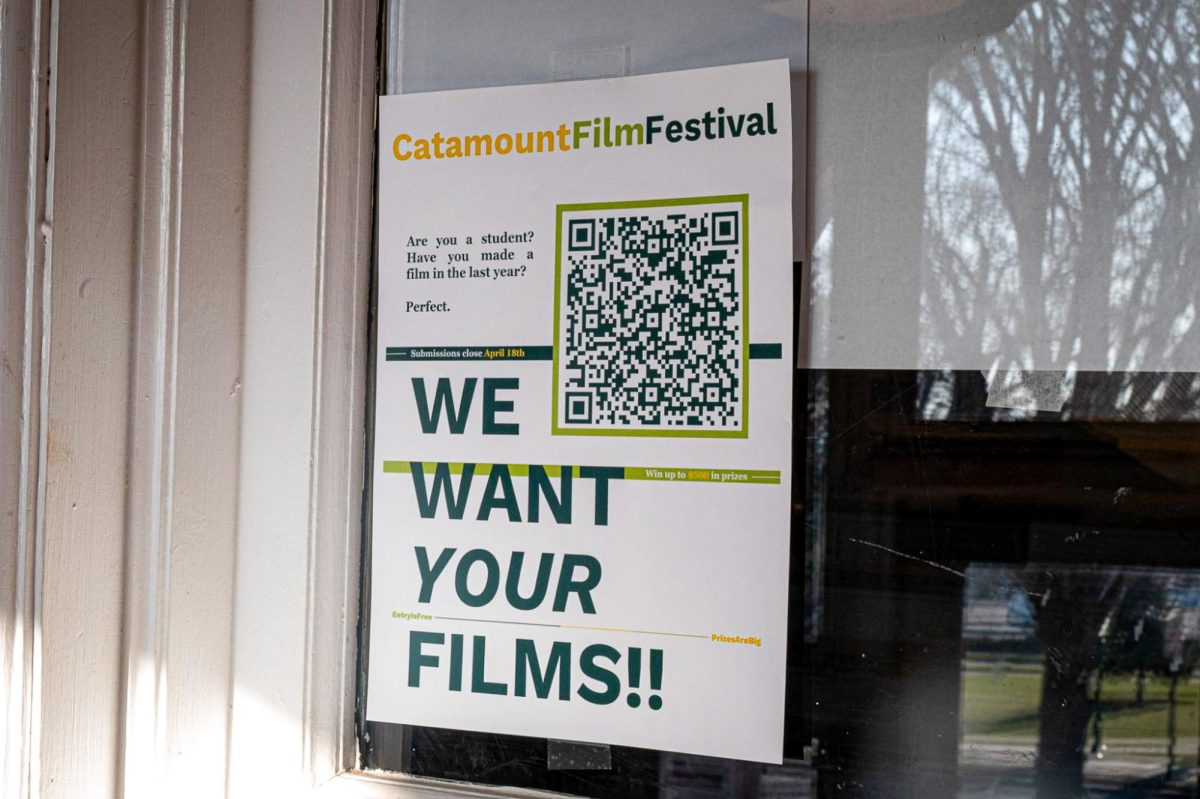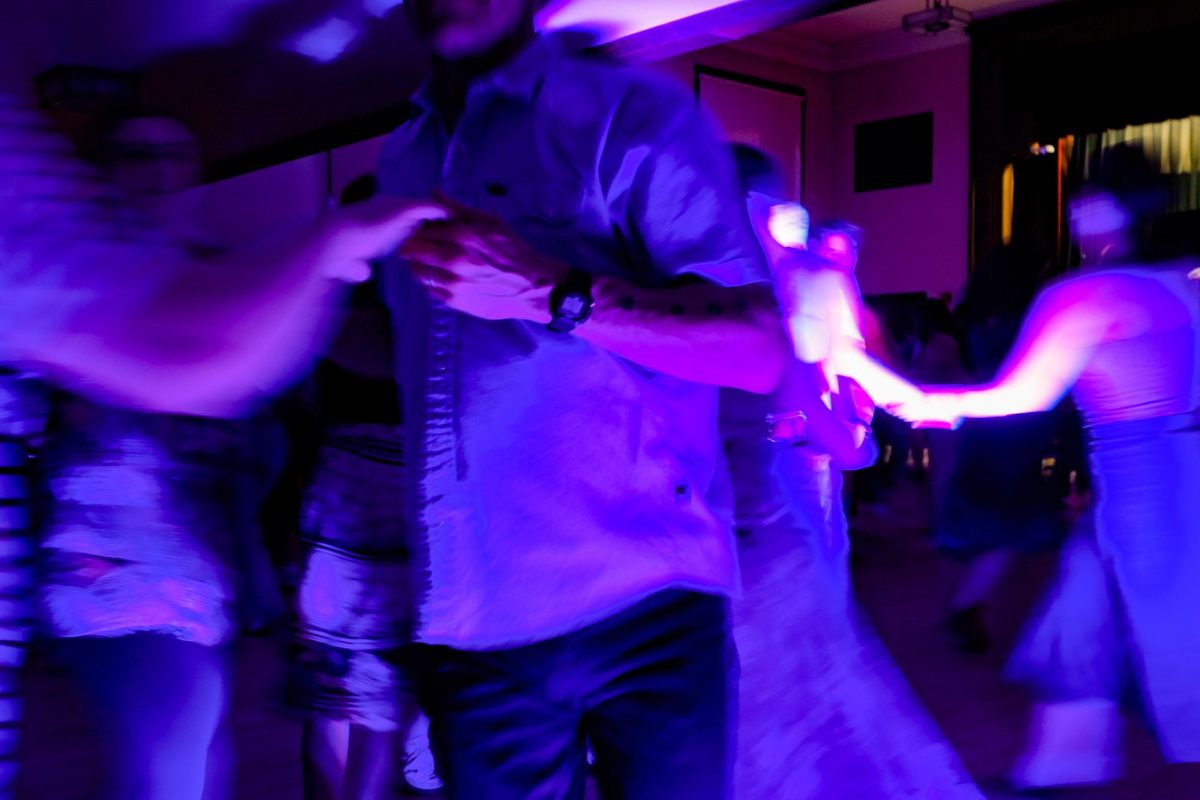Many professors have expressed the sentiment that class attendance has been at an all-time low this semester at UVM.
Professor Tyler Doggett of the philosophy department co-teaches a 25-person class, Philosophical Reading and Writing.
“I would say most of the time we get roughly two-thirds attendance, which is definitely lower than what I usually get,” said Doggett.
His other class, The Good Place, has 101 students and gets slightly better attendance, at roughly three-fourths of the class showing up, said Doggett.
“Both of those attendances are lower than when [my fellow professors] and I have taught the classes before,” he said.
Doggett has an attendance-optional policy, barring exams or other extenuating circumstances. However, if students do come to class, they need to be prepared by doing the reading and they need to stay off their electronics during class time unless they have accommodations, said Doggett.
“There are some people in [Philosophical Reading and Writing] who you probably [wouldn’t] even know are in our class,” Doggett said.
Dr. Jonathan “Doc” Bradley of the political science department teaches Vermont Legislative Research Service, International Environmental Governance along with US Political Systems, both as a first-year seminar and a regular course.
In the first-year seminar section of US Political Systems, attendance is mandatory. However, Bradley has a unique attendance policy for his larger lecture section: if 75% of students or less show up to class, he won’t post the lecture slides—which are very dense with information, according to Bradley.
However, Bradley said that he will likely have to change his policy due to lacking numbers this semester. He is even considering implementing random reading quizzes, and he would dock students’ grades if they missed more than a certain number, said Bradley.
Bradley has been a lecturer at UVM since 2021 and had higher attendance his first two years than he’s had this semester, he said.
“For the past month, I would say I’ve been hovering around 60%-70% percent,” said Bradley. “Maybe it’s that everybody was just happy to be in classes [after COVID-19 ended].”
First-year students tend to have a harder time with his attendance policy, said Doggett.
“I think first-year students see [that they] don’t have to come to class, and they think ‘oh amazing, I’m just going to sleep in every class and just do my best to follow along on Brightspace,’” said Doggett.
Attendance tends to be worse in early morning classes, said Bradley.
“I have an early morning class, but one of my afternoon classes has been spotty [too],” he said.
Attendance also got worse once the weather got colder, especially in his morning classes, he said.
Out of four students interviewed, two said the main reason why they skip classes is to catch up on sleep. The other two students said they skip the most because they are genuinely sick.
“I skip my econ class a lot because we don’t do anything,” said Anonymous Student One.
This class covers a lot of the same content as her previous economics class, which was not her expectation, she said.
“I would say that I do not go to my morning classes much, but now I’m really getting in trouble for that,” said Anonymous Student Two.
One of her professors, however, was deeply unclear with his attendance policy.
Student Two emailed her professor about missing classes due to personal issues, and he was very understanding and told her taking care of herself was the priority. However, after missing the whole week, he emailed her saying he was putting her on academic alert for his course due to missing multiple classes, she said.
She was very frustrated because she thought she had been granted permission to miss class that week. However, when she brought it up to her adviser later, she was told there was no academic alert and it appeared to just be a threat, Student Two said.
Other than that professor, though, she noted that her professors have been very understanding when she emailed about personal reasons for missing class. Anonymous Student Three shared this sentiment, and they said there was only one of their professors who has been harsh when they’ve had to miss class.
Student Three skips their psychology class the most because it’s their earliest and largest class.
“I skip my last class on [certain days] because I hate the professor so much, and I don’t want to be near him,” Student Three said.
Anonymous Student Four skips her psychology class the most because it has an online option, and the material in class is the same as the textbook. Her attendance in her morning classes is better because she is a morning person, and she loses motivation in the afternoon, she said.
Three of the students interviewed, who are all juniors living off campus, agreed that their attendance has been worse than when they lived on campus, they said.
However, there are a variety of reasons why students are motivated to go to certain classes. If she’s interested in the content or if there’s someone hot in the class, for example, Student Two said she is more likely to attend the class.
Student Three goes to their photography class consistently because they like it, feel like they are learning valuable skills and love the professor, they said.
Sometimes it’s the strict attendance policies, though, that drive students to go to class.
One of Student Three’s professors takes random attendance, and if you miss two-thirds of these, you can’t take the final, they said.
Student One goes to one of her political science courses frequently just because there are weekly quizzes, she said.
“If you require attendance, you get a lot of students who are coming to class for the wrong reasons, and it’s not great for the class dynamic if you have [students] who are grumpy about being in class,” said Doggett.
Doggett also noted that it is particularly surprising that students don’t show up to Philosophical Reading and Writing because it is not a required course; skipping a required course with a 100-student lecture is one thing, but skipping a class a student chose to be in is baffling to him.
Student Two shared this sentiment, and said it frustrates her to think that people don’t show up to classes that she wanted to register for and didn’t get into, she said.
If students had to pay $200 to sleep in and miss class, they never would, but this is essentially what is happening, said Doggett.
“Who you are abusing [by skipping class] is not me and not the school—you are abusing yourself,” said Bradley.













